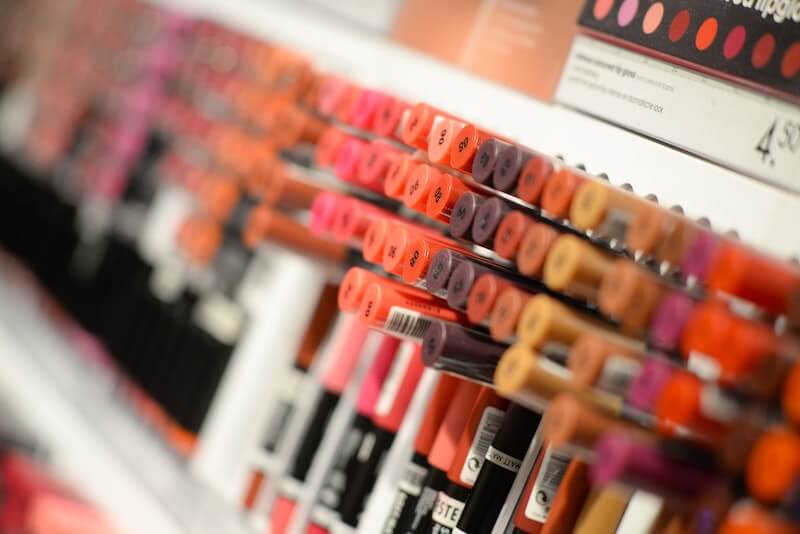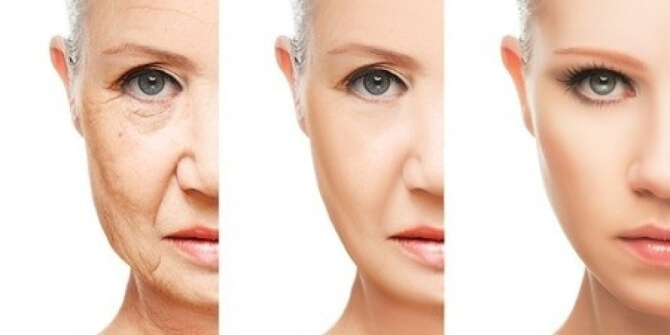When we are stressed, our bodies have a chemical response, causing all kinds of spikes in hormones that affect our skin. Basically, when you are stressed and feeling vulnerable, so is your skin, which makes it more sensitive and reactive.
You may have been warned about this before, and perhaps have even seen the results of stress on your skin when you have a big presentation at work or a job interview. Read more on how stress can impact on your skin…
Why is stress impacting on my skin?
Have you noticed that you tend to break out at the worst possible moment, for example; right before an important test or meeting?
That’s because when you are feeling stressed, your body releases cortisol and other hormones that tell your sebaceous gland to produce more oil, which in turn makes you more prone to breakouts.
If you have oily skin you are more likely to suffer with breakouts. If you don’t become oily under pressure, research has shown that stress can have other detrimental effects on the barrier function of the skin. For instance, water loss that not only dehydrates the skin, but also inhibits the skin’s ability to repair itself after an injury.
A disturbance in the skin barrier function makes it easier for irritants, allergens, and even germs to penetrate the skin and cause problems. Specifically, stress can make rosacea redder or acne lesions more inflamed and persistent. It can also worsen dermatitis, hives, fever blisters and psoriasis.
A good moisturiser is a must when protecting your skin from stress. Assuming it is made of quality ingredients that nourish your skin, rather than adding chemical stress, it can boost the barrier function of the skin, and help get rid of persistent stress-related breakouts.
RECOMMENDED: Natural Intensive Healing Salve from Mama Nature
What can I do to help stressed out skin?
Habits that form when you are stressed, such as rubbing, scratching and biting your fingers or lip will increase your chances of skin damage and sickness as well. When your immune system and skin’s defenses are already weakened, these nervous tendencies will not help.
It isn’t all doom and gloom though; the fact that studies now KNOW how stress affects us is very helpful in finding a solution or preventing it in the first place.
The 7 steps to stress-free skin
1. Don’t neglect your skin
It’s more important than ever when you are stressed that you look after your skin.
• Cleanse properly (with a suitable facial wash)
• Exfoliate at least once a week to get rid of dirt and grime
• Use a moisturiser morning and night (opt for one that contains SPF with 15 or more to hydrate and protect your skin from the sun)
2. Take time for yourself
We all lead busy lives and it can be difficult to put some time aside for ourselves but it’s so important to have some time to reflect, refresh and feel re-energised.
Reading a book, taking a bath, meditating or writing down your thoughts in a journal are all great ways to relax and unwind.
3. Say no! Set boundaries and limits to give yourself a break
If you are becoming stressed due to your high-pressured job, it’s important to prioritise and say no to certain tasks when you are feeling under pressure. Make a ‘to do’ list and put it in order of priorities. Most things aren’t as bad as they seem once you write them down on paper.
4. Exercise regularly
Choose an exercise you love and use it as your stress buster! It will also keep your mind fresh and sweat out some toxins from your body. It’s also great for a bit of ‘me time’ too.
5. Make sleep a priority
A lack of good quality sleep can age your skin as much as 10 years. Make sure that you are getting at least 8-9 hours sleep a night so you wake up feeling refreshed and ready for the day ahead.
If you have trouble switching off your mind come bed time, keep a journal next to your bed and write down any thoughts going through your head. Also make a rule that no laptops and phones after dinner time.
SEE ALSO: Are you getting enough sleep?
6. Eat well
Nourish yourself with good food and try to steer clear of junk food (the occasional treat is of course allowed).
Stress can slow down your metabolism, which can increase your likelihood of gaining weight.
7. Laugh!
They say that laughing is the best medicine, and we agree! Having a laugh can be as beneficial as meditation for reducing stress levels.



